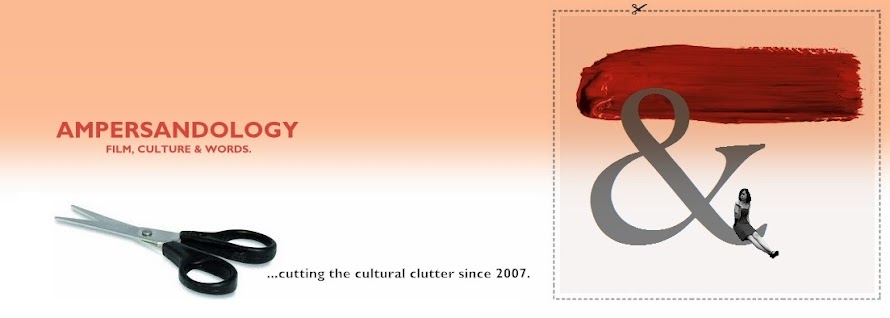
This Day in History: October 30, 1938
On Sunday, October 30, 1938, millions of radio listeners were shocked when radio news alerts announced the arrival of Martians. They panicked when they learned of the Martians' ferocious and seemingly unstoppable attack on Earth. Many ran out of their homes screaming while others packed up their cars and fled.
Though what the radio listeners heard was a portion of Orson Welles' adaptation of the well-known book, War of the Worlds by H. G. Wells, many of the listeners believed what they heard on the radio was real.
Source: Enclyclo
Despite whatever the man got up to in his old age (and, by my present tally, that is limited to “drinking” and “being drunk”), Orson Welles in his youth was the original gangbuster. Srsly. Orson Welles was a bad news bear and a first-class cad, and it’s about time everyone knew it.
You ask for PROOF? Look no further than the notorious, much mythologized account of Welles’ 1938 broadcast of H.G. Welles’ War of the Worlds.

Orson Welles: Bad Ass?
A Case Study
Though recent studies place the hysteria that resulted from the broadcast somewhere between “exaggerated” and “fictional,” what I take out of the story of the 1938 broadcast isn’t the widespread panic that Welles may or may not have caused—it’s that you know that’s exactly what he set out to do.
His Mercury Theatre on the Air troupe was going up against the Chase and Sanborn Hour, the most popular radio show of time. From what I understand, it was a variety hour with a dummy and nowhere near as awesome as Welles doing just about anything, but I guess that’s where 1938 and I will have to agree to disagree (…again). Also, a ventriloquist on a radio show? How does that work, exactly? Anyway, Welles had to cook up something really hot in hopes of luring the audience to his dinky little broadcast. So what does he decide to do to endear himself to the nation?
That’s right. Terrify the living food stamps out of everyone. Rock. On. Brother.
He and Howard Koch took the original War of the Worlds and adapted it for the radio: obviously, changes would be made to accommodate the medium. But did he have to make it sound so real? Well, either way, it really did, peppered with the little touches that would give even a skeptic pause: official sounding weather reports, news interviews and a “secretary of the Interior” whose voice bore a suspicious resemblance to FDR. You almost can’t blame anyone for who may have thought it was real—which, after all that, was probably no one: the media ran for the hills with this story like that stupid kid in the Spielberg film version (seriously, what was the point of that again? Lame, Steven. Lame.).
The format the broadcast adopted wasn’t new but certainly wasn’t common: Fr. Ronald Knox had done it in 1926 with a faked London riot for the BBC, and Archibald MacLeish’s radio shows (which I think Welles actually worked on) were filled with the same kind of real-world news reports. But Orson, with typical wunkerkind trickery, took what had been done and injected it with steroids, and then injected the steroids with crack, bloating the formula to chew up an entire programming block. Practical? Well-meaning? These aren’t words in Orson Welles’ vocabulary. Bigger? Better? Cruelly brilliant? Now you’re getting warm.
Oh, he can cry artistic license all he wants, but Orson, darling? I know the truth. This isn’t 1963 and you ain’t Federico Fellini. Metafiction was but a twinkle in Charlie Kaufman’s eye…you know, if he, um, had been born. You knew what you were up to, you DOG you. Case in point:
Welles's greatest performance that evening wasn't in the studio; it was in a hallway, at the improvised news conference, when he feigned a stunned, apologetic demeanor. In reality, as Paul Heyer notes in The Medium and the Magician, Welles carefully concealed his satisfaction with the hysteria while expressing concern over the rumors of deaths attributed to the program. The threats of investigation coming from the Federal Communications Commission bothered Welles, too, but they were primarily CBS's problem.
Source: The Chronicle.
That is so badass I can’t even handle it. Orson, baby: there’s no judgment here. This is a safe space, so let it all out: are you a big time faker, yes or no? I have my own answer prepared (yes).

Oh, I can just see it: Orson standing up for the reporters, hands clasped behind his back and collar open just so, saying all the right words to express his regret. BUT ORSON REGRETS NOTHING. He’s got that contrite but faintly smug look on his face: that’s his default expression, I suspect, and not unlike a joy-riding kid who just crashed your car but had a great time doing it. Ladies and gentlemen: ORSON! WELLES!
Check and mate, my friend. You know, some days? I think Orson Welles is the greatest person who has ever lived in the world. Ever. After all, homeboy married Rita Hayworth, so you know he was doing something right.




No comments:
Post a Comment